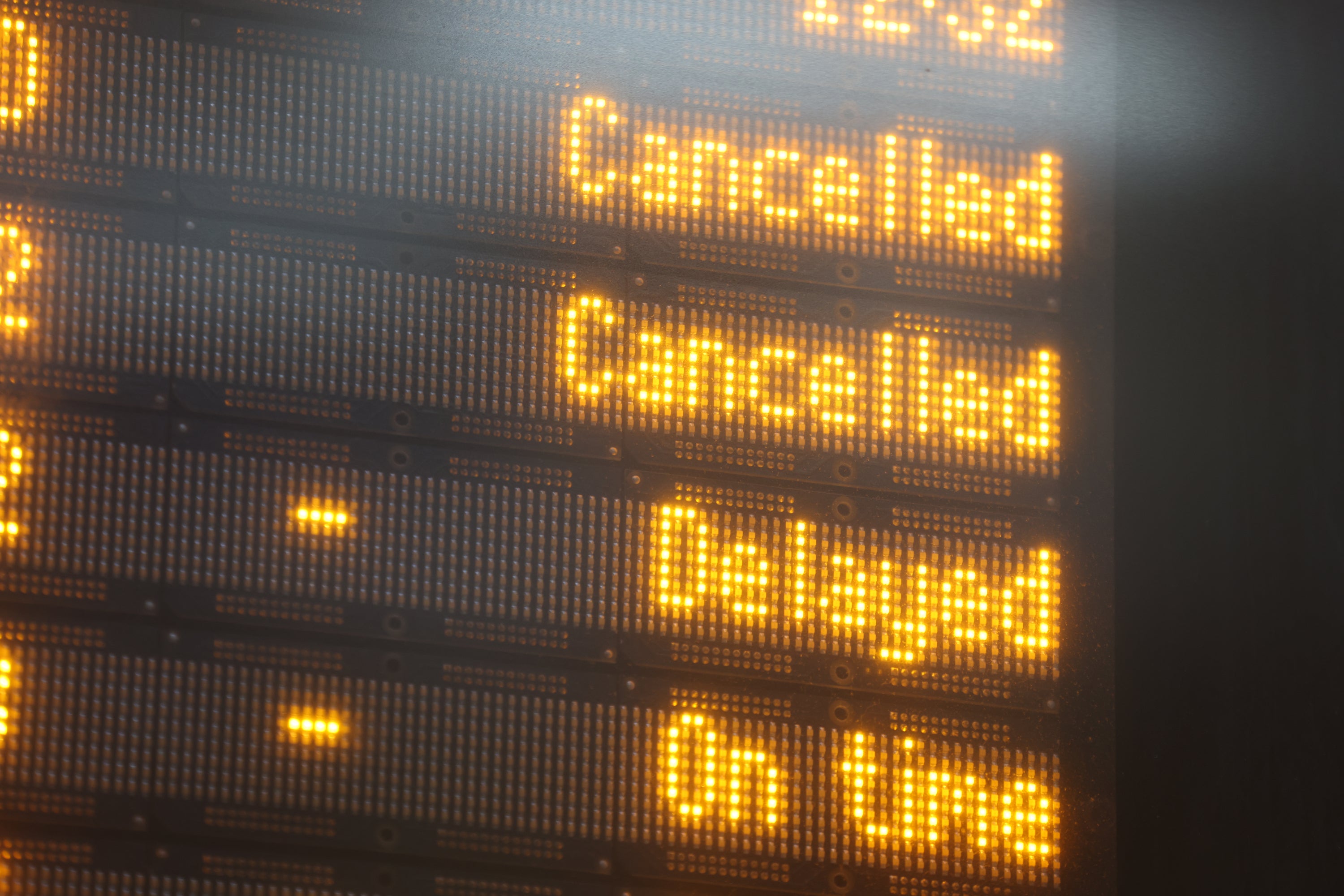Worst year on record for train cancellations
Analysis by the PA news agency shows the cancellations score in the 12 months to July 23 was 3.6%.

Your support helps us to tell the story
From reproductive rights to climate change to Big Tech, The Independent is on the ground when the story is developing. Whether it's investigating the financials of Elon Musk's pro-Trump PAC or producing our latest documentary, 'The A Word', which shines a light on the American women fighting for reproductive rights, we know how important it is to parse out the facts from the messaging.
At such a critical moment in US history, we need reporters on the ground. Your donation allows us to keep sending journalists to speak to both sides of the story.
The Independent is trusted by Americans across the entire political spectrum. And unlike many other quality news outlets, we choose not to lock Americans out of our reporting and analysis with paywalls. We believe quality journalism should be available to everyone, paid for by those who can afford it.
Your support makes all the difference.Industrial disputes, severe weather and coronavirus-related staff sickness caused the worst year for train reliability in Britain since records began.
Analysis of Office of Rail and Road data by the PA news agency shows the cancellations score in the 12 months to July 23 was 3.6%.
That is the highest figure in records dating back to 2015.
Strike action in disputes over jobs, pay and conditions has resulted in a surge of cancellations in recent weeks.
Avanti West Coast had a cancellations score of 16.2% of its services in the latest four-week period, between June 26 and July 23.
That is the most in any recorded period for the West Coast franchise since the figures began.
The operator says it is suffering staff shortages caused by drivers engaging in an “unofficial strike”, with a sharp decline in the number who are voluntarily working on their rest days for extra pay.
Drivers’ union Aslef insists this is “disingenuous” and blames the company for failing to employ enough drivers.
Other operators which saw their highest cancellations scores on record in the four weeks to July 23 include CrossCountry (10.3%), LNER (7.4%) and Merseyrail (5.5%).
The scores reflect the number of full and part cancellations as a proportion of planned trains.
Each part cancellation counts for 0.5 of the total which is used to calculate the percentages.
Severe weather also caused major disruption to services during the past 12 months.
A rare “do not travel” alert was issued across the network on February 18, with seven operators suspending all services because of Storm Eunice.
Lines were blocked and damaged by fallen trees and flying debris as winds exceeded 120mph.
If the Government was serious about tackling the cost-of-living crisis it would make rail travel much more affordable and make it easier for people to use cars and planes less
Last month’s heatwave brought services to a standstill due to the closure of lines or speed restrictions amid fears of tracks buckling as temperatures exceeded 40C, and lineside fires.
The spread of the Omicron coronavirus variant towards the end of last year led to a rise in staff sickness which resulted in a spate of cancellations, leading to timetables being slashed.
July’s retail prices index (RPI), an inflation figure usually used to determine the next annual rise in regulated fares such as season tickets, will be released on Wednesday morning.
The Department for Transport announced on Monday that the 2023 increase in fares in England will be below RPI, which is expected to be around 12%.
Chris Page, who chairs pressure group Railfuture, said: “The Government claims that the fare rise will be below inflation, but the devil will be in the detail.
“They won’t say what the increase will be, or which fares it will apply to.
“If the Government was serious about tackling the cost-of-living crisis it would make rail travel much more affordable and make it easier for people to use cars and planes less.
“Germany has shown the way with its nine euro (£7.58) travelcard offer.
“It proves that if the price is right, people will flock to the trains.”